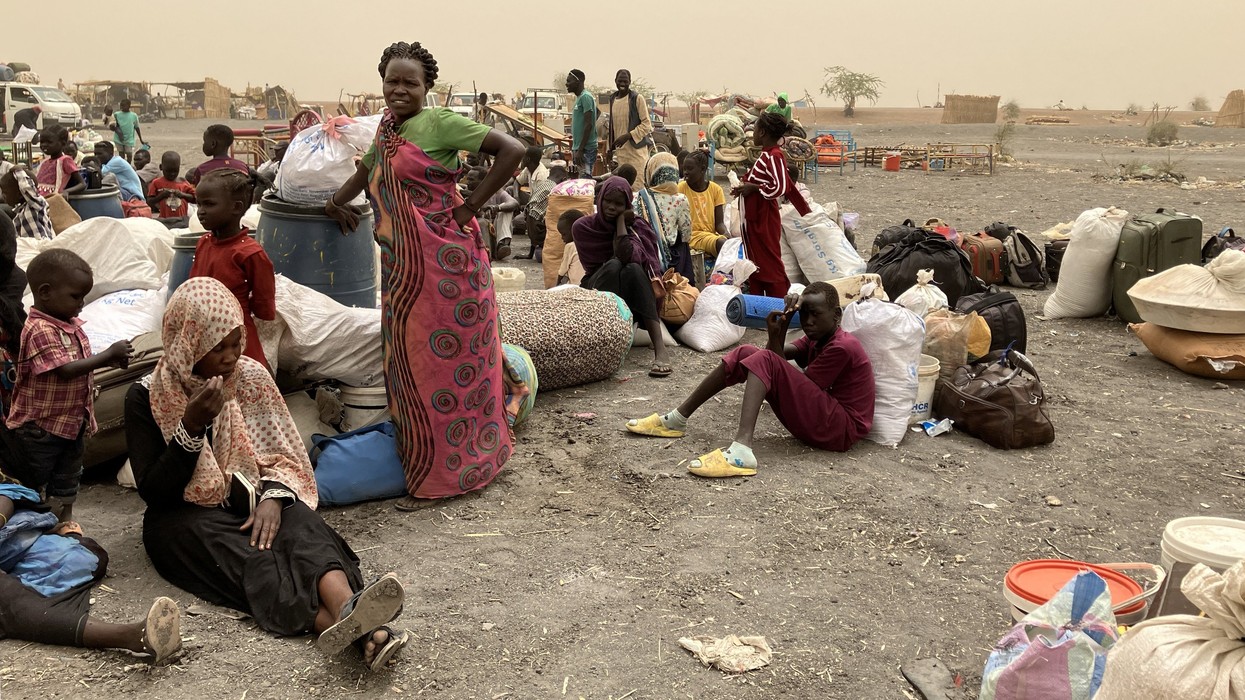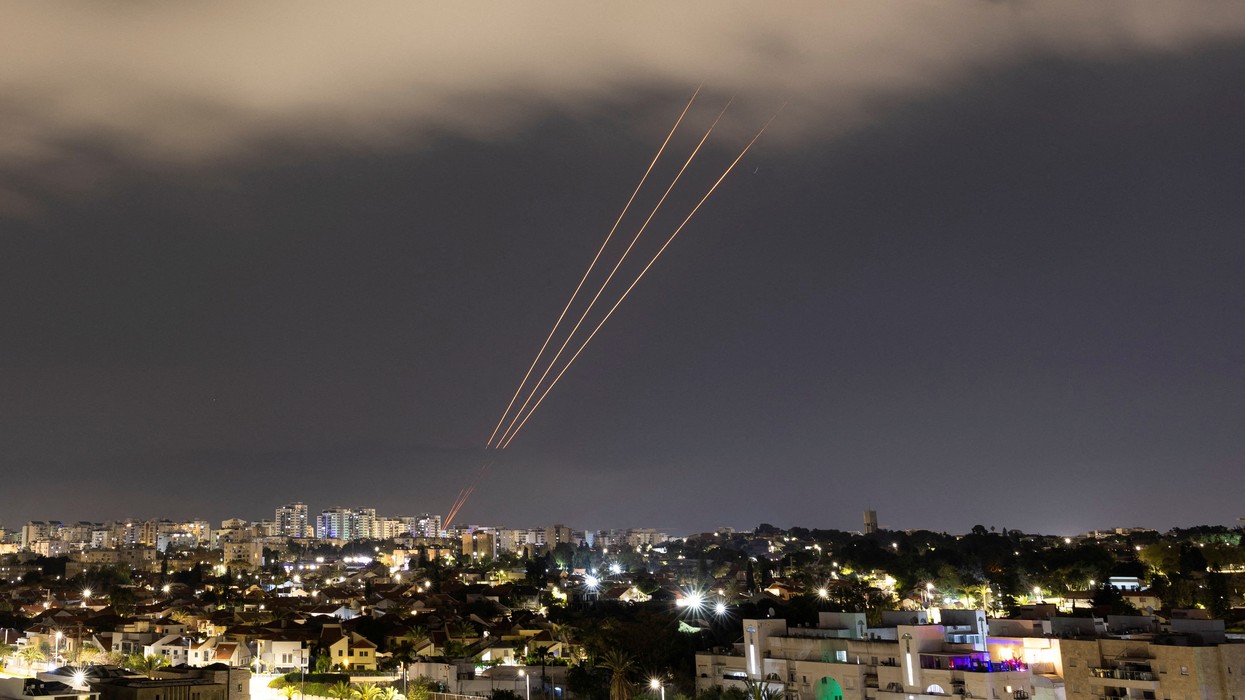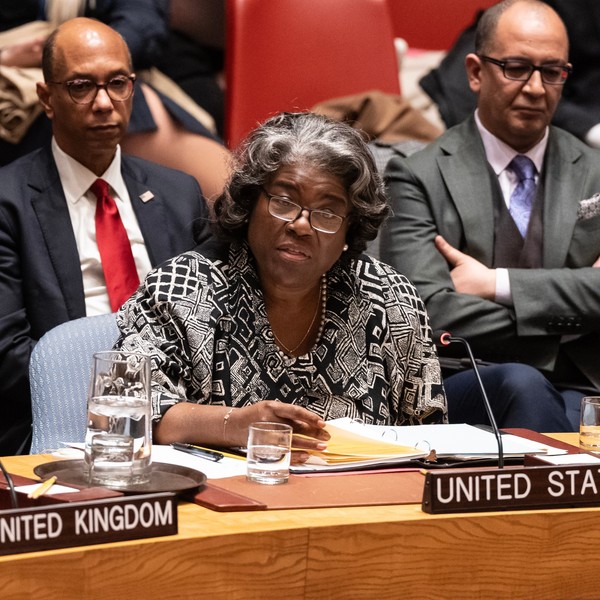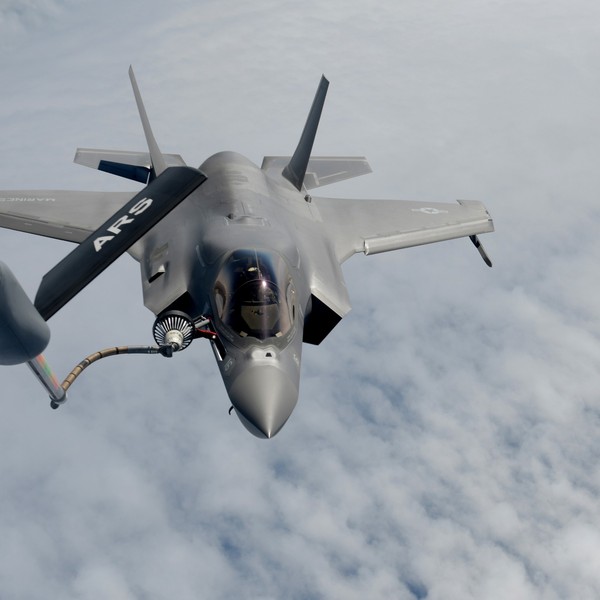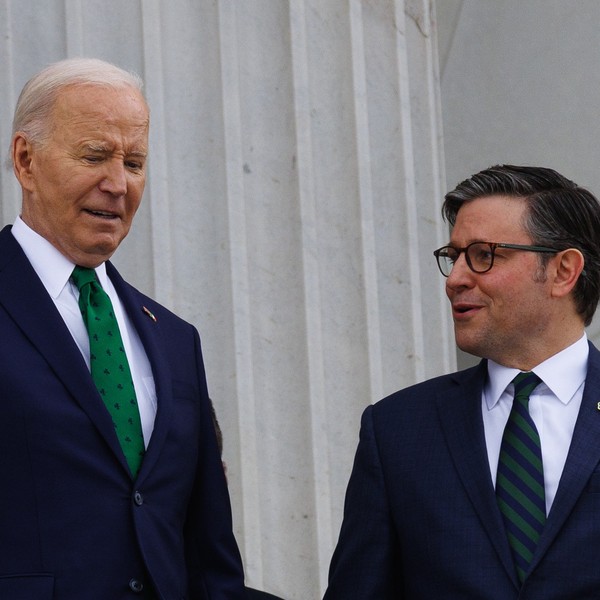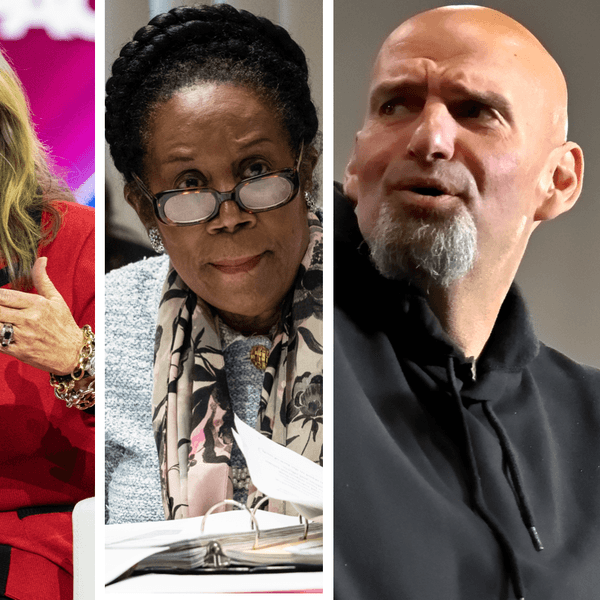Renowned 20th century theologian Reinhold Niebuhr asserted that irony emerges from history when a state finds itself in seemingly unfortunate circumstances brought about through the unintended consequences of its own actions. To say that the United States finds itself in unfortunate circumstances is an understatement. Russia's invasion of Ukraine starkly shows that the post-Cold War world order the United States built is now gone, and along with it the unipolar moment. The war in Ukraine is set against the backdrop of a global democratic recession and increased anxiety over the continuing rise of China.
Historian Anne Applebaum ascribes these circumstances to a war between democracy and “the forces of autocracy,” calling for renewed aggressive American leadership as democracy’s champion. President Joe Biden has echoed these concerns, and competition between a democratic world and autocratic challengers like China and Russia is a strong theme in many of his speeches. Irony hangs heavy on calls for American leadership in such a war.
Cooperation between Russia and China is conceptually shallow; it’s based more on their resistance to 30 years of American hegemony than any shared deep commitment to autocracy. This is what makes any American championing of a global war between democracies and autocracies so ironic: if there is a glue that binds “the forces of autocracy” together it is their antipathy towards the United States. The narratives that Chinese Premier Xi Jinping and Russian President Vladimir Putin create do have autocracy and anti-hegemony in common but in service to larger worldviews that justify Xi’s and Putin’s assertions that China and Russia respectively have special — and conflicting — historical destinies. American commitment to the idea of a war between democracies and autocracies blinds us to the reality that Putin and Xi’s world views are contradictory and in tension with one another.
Politics in the modern era requires that states cultivate some sense of shared history, common purpose, and worldview. Both Xi’s and Putin's worldviews depend on distinct understandings of world history and their respective states' places in it. These historicisms weave narratives that put either Moscow or Beijing at the center of world history as the basis for justifying either Russia or China having special roles in international politics.
Both Xi’s and Putin’s narratives center around golden eras and periods of humiliation. In Putin's case, the golden era is represented by the last decades of the Tsarist Russian empire before the revolution in 1917. Xi's golden era is much more expansive, and instead emphasizes a unique world order centered around China that persisted until the mid-19th century. The "century of humiliation" that followed the fall of China's world order animates Xi's mistrust and vilification of states that benefited from that period. Putin's period of humiliation is much shorter and more recent, spanning the 1990s and early 2000s after the fall of the Soviet Union, which he has infamously termed "the greatest geopolitical catastrophe of the century."
Putin’s and Xi’s adherence to diverging historicisms puts their worldviews in tension with one another. The Russian empire directly benefited from China's "century of humiliation." Between 1850 and 1870 the Russian empire would gain an expanse covering over one million square kilometers north of the Amur River and east of the Ussuri river through treaties forced upon China's Qing dynasty. The Eastern border between China and Russia still runs along the lines established in what the Chinese remember as the "unequal treaties." Putin's reliance on the Russian empire as a legitimizing anchor point, therefore, makes it difficult for China to fully embrace his program.
Nor is the brief history of cooperation between the Soviet Union and communist China likely to serve as common ground between Xi and Putin. While Xi has strived to preserve a narrative of continuity across the communist era in China and his own historicism, Putin has vilified the Soviet Union. In a 7000-word screed attacking the basis of Ukrainian sovereignty last summer, Putin blamed the Bolsheviks for opening the door to national independence for peoples who he sees as proper Russian subjects. The absurdity of this argument aside, Putin's assertion that the Soviet Union created the conditions under which the historical Russian world disappeared makes it unlikely that he sees avenues to using Soviet history as a source of legitimacy.
The cooperation that has emerged between Russia and China over the past two and a half decades has been energetic but conceptually shallow. Russian President Boris Yeltsin and Chinese General Secretary Jiang Zein signed a declaration in 1997 that committed both states to promoting "multipolarization" and the "establishment of a new world order." The resulting cooperation between the two powers has centered largely around resisting American hegemony.
Notably, none of this cooperation amounts to a shared conceptual world view beyond exiting American hegemony. Not only are Xi and Putin unlikely to care for each other's historicist national narratives — the deep narratives of their respective national histories that they promote are actively in tension with one another. They have managed these tensions successfully thus far, but that there is tension to manage at all throws doubt on the idea of there being unified “forces of autocracy.” We have not seen a concerted effort to build a common worldview comparable to the ones that bind together the European Union, the broader Atlantic community, or even a civilizational concept like the "the West."
This tension explains in part China’s unwillingness to fully endorse Russia’s revanchism. China has not recognized any of the controversial sovereignty claims Russia has made since 2008 in either Georgia or Ukraine. While China has offered rhetorical support for Putin's position that security arrangements in Europe ought to be renegotiated, they have consistently abstained on votes concerning the Russian invasion of Ukraine in the United Nations General Assembly and Security Council. China has also taken a cautious position on helping Russia escape increasingly stringent American and European sanctions.
The shallow nature of "autocratic solidarity" should not surprise us. Why should we expect that Xi would make sacrifices to help Putin validate a worldview that is in tension with his own? Herein lies the irony of the idea that the United States ought to champion democracy in a war with the “forces of autocracy”: the United States would in effect build a worldview of autocracy that would deepen cooperation between Russia and China. Up to this point that cooperation has been no deeper than their mutual shared interest in escaping the American-led world order.
Niebuhr argued that historical irony dissolves when the state whose actions bear it becomes aware of its own unintended consequences. Upon the dissolution of irony two paths are open to that state: it can either choose to pretend that the irony never existed or reform its actions.
The first path would mean fully committing to the idea the United States is democracy’s champion in the war against autocracy. This path would trade the cost of cementing the relationship of convenience between states dissatisfied with American hegemony for whatever benefit there is in having a clearly defined enemy. This course would be truly tragic, as it would consign broad portions of the world to a new cold war in the best of circumstances and risk a new world war in the worst. No amount of clarity about who our enemies are is worth that cost.
The second path would be to reform how we frame international politics and leave the work of building an anti-American coalition to Russia and China, if that is how they choose to pursue their goals. Moscow and Beijing may still choose to continue cooperating, but the costs of maintaining that cooperation are high. There is no reason to make the work of managing an anti-American coalition easier for Xi and Putin. Nor does choosing the second path mean abandoning Ukraine. We can — and should — point to the norms of sovereignty and non-intervention to make Kyiv’s case, norms that Russia and China conveniently already claim to uphold (whatever their actions to the contrary).
We do not need a war for democracy or against autocracy to decry what is happening in Ukraine. Far better to reform ourselves, adopt restraint in our rhetoric, and leave the task of setting the world on fire to others.

